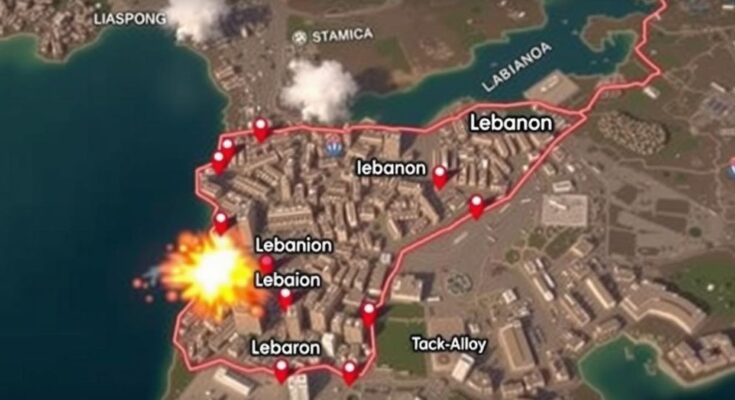Riyad Mansour, the Palestinian envoy to the UN, addressed the ICC warrant against Israeli Prime Minister Netanyahu, asserting its basis in his alleged crimes. He warned of a humanitarian crisis in Gaza while U.S. and Russian diplomats expressed differing views on the situation. The discussions underscore the urgent need for international law in addressing the ongoing Israeli-Palestinian conflict.
During a recent meeting of the UN Security Council, Riyad Mansour, the Palestinian envoy to the United Nations, addressed the warrant issued by the International Criminal Court (ICC) for the arrest of Israeli Prime Minister Benjamin Netanyahu. Mansour emphasized that the warrant is related to Netanyahu’s alleged crimes rather than his religious identity. He urged council members to resist the Prime Minister’s accusations of antisemitism, which he claims detracts from the pursuit of international law and justice.
Mansour warned of the severe implications of ongoing violence in Gaza, citing risks of genocide that could alter the Middle East landscape for generations. He called upon the international community to favor humanitarian law over political agendas, stating that the predicament faced by Palestinian children must not be a pawn in political calculations. Current conditions in Gaza are dire, with fears of famine and lack of essential infrastructure, prompting urgent humanitarian concerns.
In contrast, Robert Wood, the deputy U.S. ambassador to the UN, reiterated Washington’s position against Israeli annexation in the West Bank and reinforcement in Gaza. However, he criticized the ICC’s arrest warrant for Netanyahu and his former defense minister, attributing failures in ceasefire negotiations to Hamas. The dissonance was further echoed by Russia’s Dmitry Polyanskiy, who criticized U.S. foreign policy, suggesting it overlooks the necessity of peace in Gaza, while warning against actions that might lead to further instability and violence.
The context of this discussion is rooted in ongoing conflict and humanitarian crises in the region, particularly in Gaza. The ICC’s warrant against Netanyahu has triggered debates regarding international law and the responsibilities of state leaders. Riyad Mansour’s statements reflect the Palestinian perspective on these issues, highlighting the perceived injustices faced by Palestinians and the deteriorating conditions in Gaza. The international community, via the UN, is being called upon to uphold humanitarian principles amidst political conflicts that have persisted for decades.
In summary, the recent discussions at the UN Security Council underscore critical tensions surrounding the Israeli-Palestinian conflict, particularly in relation to the ICC’s warrant for Netanyahu. Riyad Mansour’s appeals for action against perceived injustices highlight the humanitarian crises faced by Palestinians, while differing views from U.S. and Russian representatives illustrate the complexities of the geopolitical landscape. The discourse emphasizes an urgent need for international law to prevail to restore stability and peace in the region.
Original Source: www.arabnews.com




